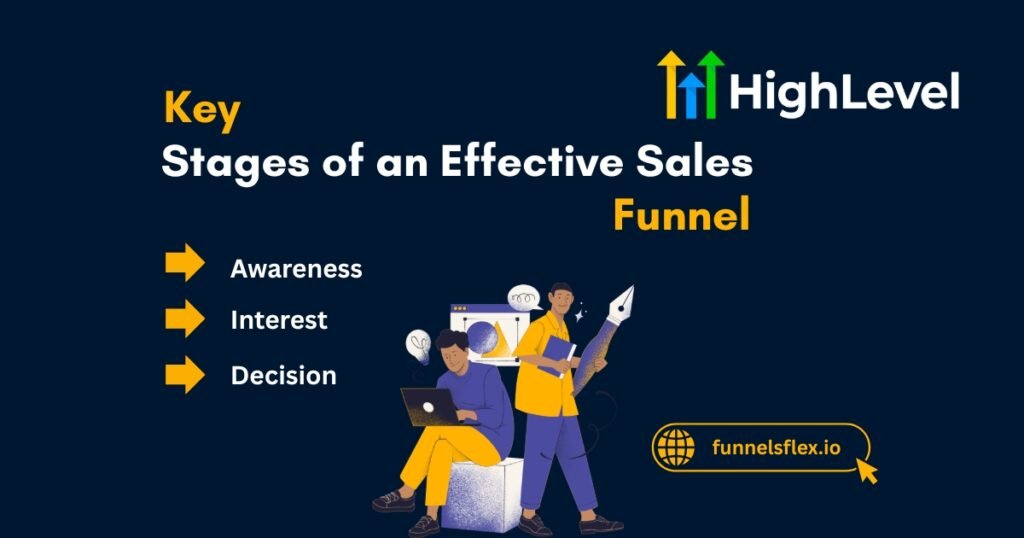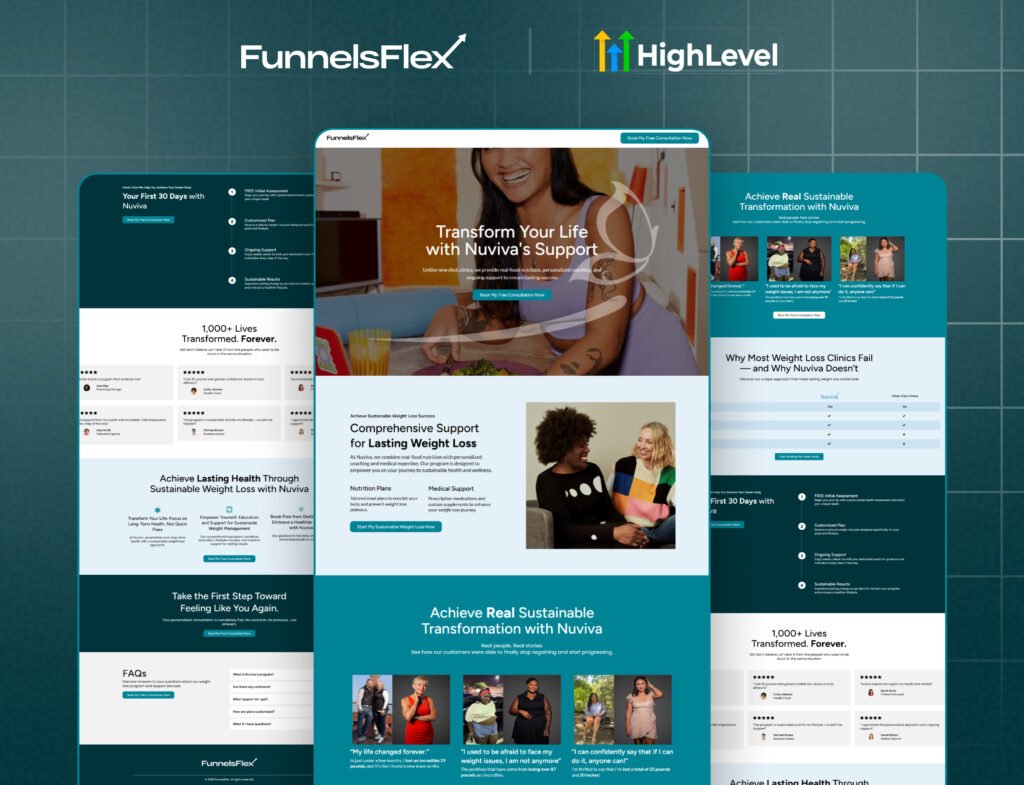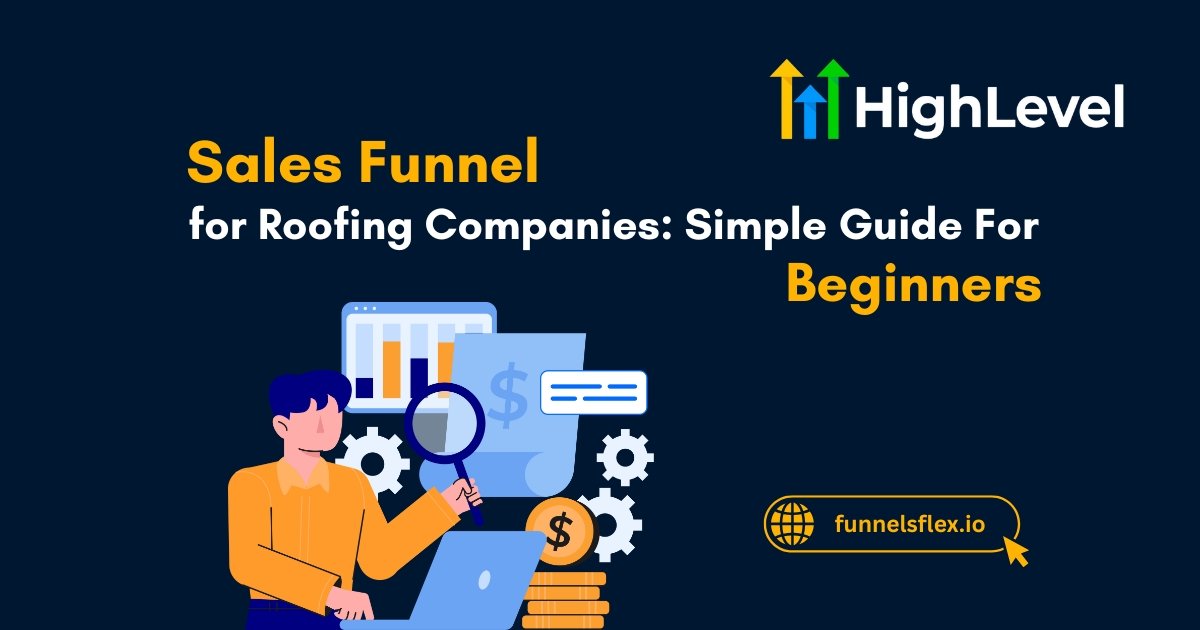How to Create a Sales Funnel for My Coaching Business? 5 Easy Steps
Starting a coaching business is exciting, but finding clients consistently? That can feel like running in circles. You know your expertise, you love helping people, yet without a system, getting noticed can feel almost random.
A sales funnel changes that. Think of it as a roadmap for your clients’ journey. It guides them from first hearing about you to trusting you, and finally taking the leap to work together. When it’s done right, clients don’t feel pressured – they feel understood.
And honestly, once it’s running, the funnel works quietly in the background. You keep coaching, and it keeps connecting you with the people who need your guidance.
Key Takeaways
Why Coaching Businesses Need a Sales Funnel
Ever wonder why some coaches always seem busy, while others struggle to get leads? It often comes down to a funnel. Coaching is personal – clients are investing time, trust, and money. They want reassurance.
Without a funnel, many coaches rely on word-of-mouth or occasional social media posts. Sometimes it works, but it’s unpredictable. A structured sales funnel gives you control. It ensures leads discover you, understand your value, and feel ready to take action.
Make client acquisition easier. Browse our custom coaching funnel templates and get started today.
Pro Tip
Focus on solving one small but urgent problem your audience faces. This builds immediate trust and encourages further engagement.
Key Stages of an Effective Sales Funnel

Awareness
This is the “first hello” stage. Maybe someone finds you on social media, reads a blog, or hears about you from a friend. The goal is curiosity.
Short, relatable tips work best. For instance, a life coach could post, “Feeling stuck? Try this 3-minute reflection to figure out what’s really holding you back.” Authenticity matters. People connect with real voices more than perfectly polished posts.
Picture a lead scrolling late at night, exhausted and frustrated. They pause at your post and think, “Hmm… maybe this person actually gets it.” That tiny moment starts the journey.
Consideration
Here, leads weigh options. They’ve noticed you and wonder, “Can this coach actually help me?”
Deeper content helps: testimonials, case studies, free webinars. A short video of a client describing how coaching helped them land a promotion can be more convincing than a page of text.
Personalized follow-ups make a difference too. An email referencing the guide they downloaded or the webinar they attended shows you’re paying attention. And honestly, who hasn’t noticed when someone remembers little details about them?
Conversion
Conversion happens when leads are ready. They’ve engaged with your content and are thinking about committing.
Make the next step simple. Highlight outcomes, not just features. For example: “Book a free 30-minute strategy session to map your career goals.” Short, clear, low-pressure.
Sometimes a lead hesitates. A short story or a client’s mini-testimonial can nudge them. Like, “John was unsure too… now he’s leading his team confidently.” Small touches matter.
Retention and Advocacy
The journey doesn’t stop at the sale. Retention builds loyalty, repeat business, and referrals.
Follow-ups, bonus content, or community access reinforce value. Celebrate milestones and check in occasionally. Clients notice when you care – and they tell others about it.
Increase engagement at every stage. Explore our pre-built funnels templates designed to convert leads naturally.
Pro Tip
Include mini success stories in your emails. Even one line: “Sarah thought she’d never get promoted. After 8 weeks, she’s now managing her team with confidence.” It’s human and relatable.
Steps to Create a Sales Funnel for Your Coaching Business
Define Your Ideal Client
Identify exactly who you serve. What keeps them up at night? What are their aspirations and frustrations?
Example: “Mid-level marketing managers in their 30s aiming for leadership roles but unsure how to advance.” Specificity allows messaging to resonate deeply and attract the right leads.
Build Your Lead Magnet
Offer a free or low-cost resource that immediately delivers value.
Examples include checklists, guides, mini-courses, or webinars. A fitness coach could offer a “7-Day At-Home Workout Plan.” The goal is tangible, early results that demonstrate your expertise.

Develop a Nurture Sequence
Once someone opts in, create a structured sequence to maintain engagement. Share actionable tips, behind-the-scenes insights, and client success stories.
Example: Weekly emails showing how a client overcame challenges to achieve leadership growth. Consistent, personal communication builds trust and rapport.
Create a Conversion Strategy
Focus on transformation over features. Clarify the outcome clients will achieve.
Example: “In 12 weeks, gain confidence, lead your team effectively, and be recognized.” Include a simple next step like booking a consultation. Reduce friction and make it easy for leads to take action.
Test & Adjust
A funnel isn’t static. Monitor engagement, conversion rates, and feedback. Adjust messaging, sequence timing, and offers as needed. Continuous optimization ensures long-term effectiveness.
Convert leads efficiently. Check out our ready-made sales funnels and grow your client base with confidence.
Pro Tip
Automate follow-ups to save time, but always include personal touches. Clients notice when something feels genuine.









